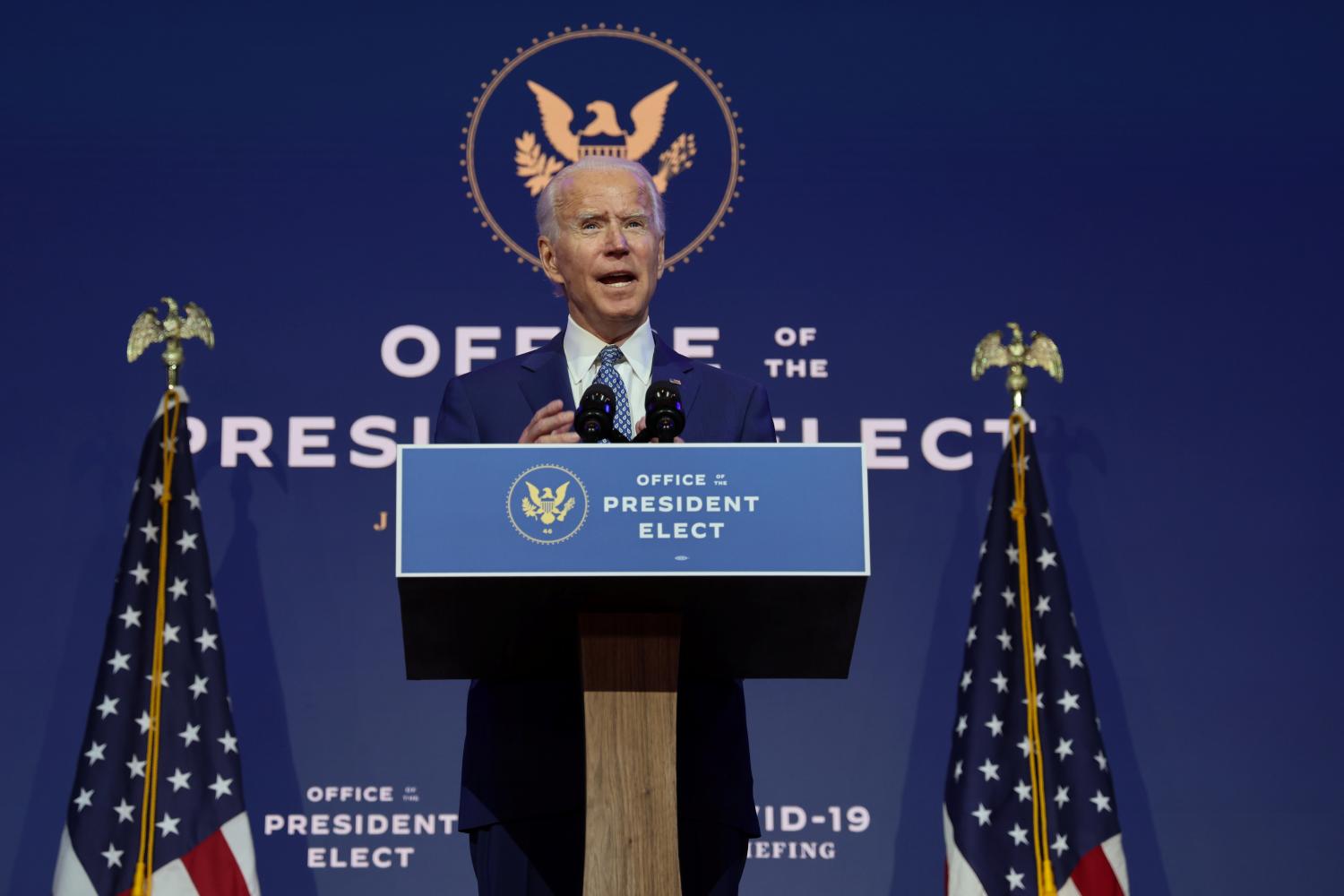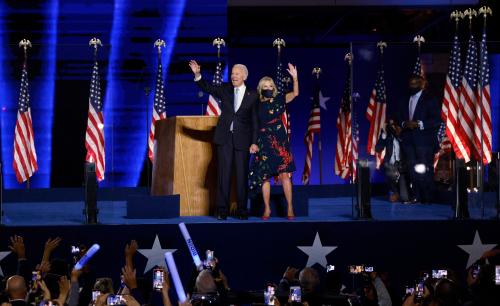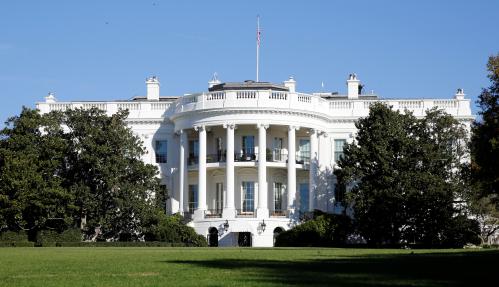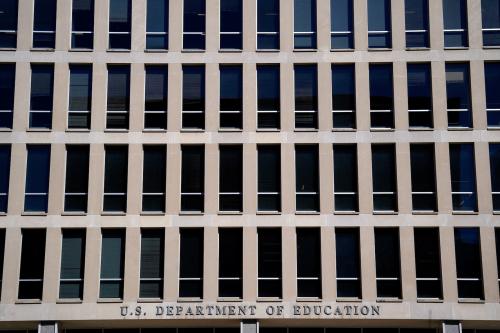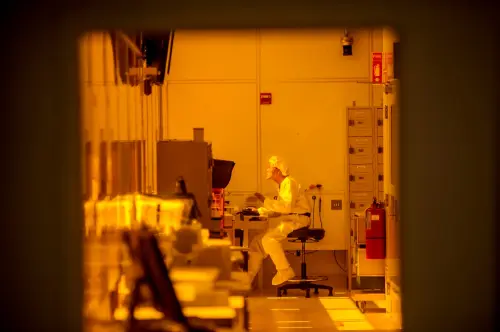This post originally appeared in The Hechinger Report; the version below has been lightly edited for style.
In the days after President-elect Joe Biden’s victory, you didn’t have to be inside the beltway to hear whispers of names being floated for cabinet positions—rumors that were later confirmed as fact: Janet Yellen, former chair of the Federal Reserve Board (Department of the Treasury); Vivek Murthy, former surgeon general under President Barak Obama (named to serve in the same role); Neera Tanden, president of the Center for American Politics (Office of Management and Budget); and Linda Thomas-Greenfield, who served as the top diplomat in Africa during the Obama administration (ambassador to the United Nations).
But alas, we’re still waiting on the name of Biden’s education secretary, the person who will help lead our schools out of one of the biggest crises in the history of American education.
Because of President Donald Trump’s clownish denial of the election results, Biden got a later start than his predecessors at naming his nominees for the top spots in his nascent administration, and there are many more departmental roles Biden must begin to fill. However, if there is anything that the entire country can agree on, it is that our schools are in the middle of an epic disaster. Uneven access to broadband, resource disparities between upper- and lower-income districts, and differences in family resources across racial lines foreshadow widening achievement gaps. Also, parents are tired of playing the roles of substitute teacher, cafeteria worker, and security guard (all at the same time). They desperately need to hear when and how all students might return to schools safely.
We need leadership on this issue—yesterday.
Perhaps Biden is struggling to find a person who can fill a role that will require a lot more than just expertise in education. The country needs an education secretary who understands the systemic nature of our current problems across multiple sectors. The coronavirus pandemic forces us to see that education isn’t the “great civil rights issue of our time”—as several past presidents would have it—any more than health, climate, the economy, or housing. Over the last six months, we’ve seen the ripple effects of our schools’ collapse: from workers who are unable to go work and families forced into food insecurity, to increasing demands on health and human services, and a drastic impact on state budgets.
Biden’s education secretary needs to step outside the schoolhouse and make deliberate political connections with other Cabinet chiefs to improve overall conditions in neighborhoods, cities, and states for families more broadly. We need an effective politician who can engage in multiple conversations to develop policy with leadership in the departments of Housing and Urban Development, Health and Human Services, Transportation, Commerce and Agriculture (not to mention with Republicans in Congress and at the state level).
I know that Joe Biden committed himself to appointing a former teacher to the education role, but a prime candidate will know just as much about the economics of the districts in which classrooms are situated as what occurs in the classrooms themselves. The secretary of education, like every other Cabinet member, must deal with a national racial wealth divide that in 2016 saw white families with median family wealth of $171,000, while Black and Hispanic families had median wealth of $17,600 and $20,700, respectively, according to the Federal Reserve’s calculations.
Wealth is a function of individuals’ total assets minus their debts, and the line between the student debt crisis and the wealth gap is clear. A 2016 Brookings Institution study found that, upon graduation, Black college graduates owe, on average, $7,400 more in student loans than their white peers ($23,400 versus $16,000). Importantly, that difference increases with time. An examination of the finances of Black and white college graduates four years after graduation showed that the loan gap more than tripled during that period, to $52,700 versus $28,000—a difference of nearly $25,000.
One of the reasons for the wealth gap is that we haven’t had leaders with the skill and desire to make the connection between education, wealth, health, transportation, and other critical areas. That’s why Biden must seriously consider a person with significant experience in higher education financing, someone who can tackle the student debt crisis and the wealth gap it has exacerbated.
At the same time, Biden must also walk a fine line and make sure the new secretary isn’t too friendly with corporate players. Let’s not make the same mistake of selecting a well-heeled education secretary who embraces greed. The next secretary must not ignore the disproportionate harm the current system causes those who have historically been denied wealth, as current Education Secretary Betsy DeVos has done. (Most recently, at an online conference hosted by her department, she called the idea of free college “a socialist takeover of higher education.”)
Teaching experience is certainly an important qualification for running the department that oversees the nation’s schools, but America needs a systems leader who can see that kids don’t live in schools; they live in communities. Biden can’t give education short shrift. We should hear the name of his nominee this week. I hope that nominee will be someone who promises to step out of the schoolhouse and work across sectors to make our communities function better for kids.
The Brookings Institution is committed to quality, independence, and impact.
We are supported by a diverse array of funders. In line with our values and policies, each Brookings publication represents the sole views of its author(s).

